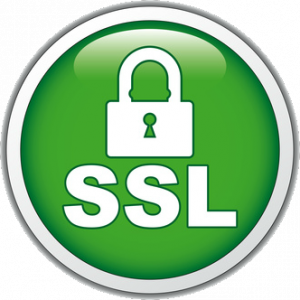What are SSL Certificates?
SSL certificate is an important part of building a reliable, trustworthy webpage for your customers and users. Most domain registrars, similar to the ones reviewed by makeawebsitehub.com, offer the option to host with SSL certification which is an added bonus. If you’re an app or mobile game developer utilizing credit and debit card transactions, you’re likely aware that SSL certification is a requirement for your websites, as per Card Payment Industry guidelines. Similarly, it’s essential to note that as a business, if you’re not investing in such security measures, you would compromise the safety of your customers’ data, leading to significant issues and potential damage to your brand reputation.
This underscores the importance of partnering with firms like XAM, whose app developers understand the criticality of prioritizing safety above all. While SSL is crucial, it’s also important to ensure that app security is robust by implementing additional measures beyond SSL certification. This includes regularly updating and patching the application to address potential vulnerabilities. Security protocols, such as encryption standards, should be implemented robustly to safeguard sensitive user data effectively. Conducting regular security audits and testing procedures can help identify and rectify any security gaps.
What Types of SSL are There to Buy?
Depending on the sort of traffic you’re getting, you’ll likely be opting for one of the three primary certification options: Extended Validation, Organisational Validation, and Domain Validation. Larger organisations with very high web traffic will take the time to invest in Extended Validation, as the rigorous vetting procedures mean that your business ranks amongst the most trustworthy and dependable of providers online. Purchasing Extended Validation for webpages with multiple subdomains can prove an expensive and time-consuming task, which makes it a less-than-ideal choice for smaller companies and developers looking to validate their webpages.
Organisational Validation is a cheaper option, but still retains the same problems as EV, often proving a time-hungry enterprise – particularly for pages with lots of subdomains. Subdomains include things like your mail server, personal blogs, downloads, and payment pages. Anyone developing content for online distribution will tell you how important it is to have a consistent online presence, but maintaining security certificates for multiple subdomains can be a hassle. SSL certification comes with a couple of disadvantages to begin with, and all of these issues are aggravated by multiple certifications.
Cheaper SSL Options
If you’re not interested in taking the time to have each of your subdomains individually certified, then it is possible to purchase bulk certification for your servers with wildcard certificates like Geotrust True BusinessID. Wildcard certificates are intended for use when more than one subdomain needs to be secured on multiple servers with the use of a single SSL certificate. Certificates like this are perfect for medium to large companies hoping to find a cost-effective and time-saving way to secure their webpage hierarchies without purchasing certificates for each subdomain. It’s also ideal for webhosting providers, or services with a complex domain structure such as electronic shopping pages and service comparison websites. Premium licenses will allow you to register an unlimited number of servers to your business, which means as you expand your operation you don’t have to worry about re-purchasing a package; you can simple add the new server to your existing one.
Common Issues with SSL Certificates
Bulking out your certification means you may encounter some common issues with key and certification mismatches. If you’ve changed your encryption protocols or lost your private keys, then there’s a good chance you’ve got duplicate file names on your system. Problems like this are simple to solve by checking the certificate’s modulus – if the modulus of the key matches the certificate file then they belong to the same pair. If you use security-sensitive features in HTML5 then you’ll need to set up HTTPS, and setting up trusted localhost setups doesn’t take too long.
Wildcard certificates generally come with 2048-bit encryption, which is a great compromise between security and server usage – 1024-bit encryption being generally too insecure and 4096-bit encryption causing ‘handshake’ delays between servers and certificates.
Even considering these minor technical difficulties, If you’re a developer or business looking for a quick solution to your certification requirements, then wildcard certificates ensure peace of mind for rapidly-growing businesses.